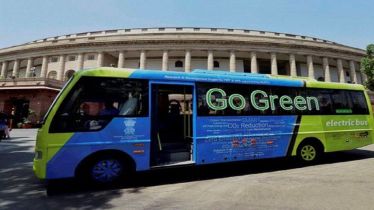States and Union territories such as Maharashtra, Gujarat, Bihar, and Jammu & Kashmir, among others, will be the first to receive electric buses under the PM-eBus Sewa scheme. Accordingly, the Centre has issued the first request for proposal (RFP) for procurement, supply, operation, and maintenance of 3,600 electric buses, and development of allied electric and civil infrastructure under scheme.
The tender document issued by Convergence Energy Services Limited (CESL) has been reviewed by FE.
According to the document, the maximum number of cumulative buses that can be allotted to one bidder has been restricted to 2,520 units. The procured e-Buses will be deployed in over 45 cities.
Notably, Maharashtra is set to receive 1,453 e-buses, followed by Gujarat at 425 and Bihar at 400.
Besides, Odisha will get 350 buses, Punjab will be given 347 units, Jammu & Kashmir and Haryana will receive 200 each, followed by Chandigarh at 100, Puducherry at 75, and Meghalaya at 50.
According to the document, cities with a population of 2–4 million will be eligible to receive 150 e-buses, while cities with a density of 1–2 million will get 100 units, and less than 500,000 will get 50.
“This RfP has been prepared for the deployment of 7m, 9 m, and 12m electric buses on a GCC basis through the PM-eBus Sewa,” the document read.
Furthermore, the Centre will provide assistance for a period of 10 years on the operational cost, and `6,400 crore worth of funds will be provided by the ministry of housing and urban affairs.
Apart from the assistance, government will further upstream electric charging infrastructure and the development of bus depots. In addition, the RFP document cites the enactment of the ‘payment security mechanism’ scheme.
Fe was the first to report on the modalities of the PSM, which have been worked out by the ministry of heavy industries. Under the mechanism, the Reserve Bank of India (RBI) will pay the agreed monthly amount owed by the state transport undertakings (STUs) in case of a default.
After a grace period, the default amount will then be deducted by RBI from the respective STU’s state government’s account held with the apex bank via ‘Direct Debit Mechanism’.
Lately, e-bus manufacturers have urged the Centre for such a mechanism to ensure timely payments for the supply of these vehicles to STUs.
In the past, e-bus manufacturers have shown reluctance in the supply of vehicles to STUs due to the latter’s financial constraints. The scheme ‘PM-eBus Sewa’ is expected to augment city bus operations by 10,000 electric buses on a PPP (public-private partnership) model.
In August, the Union cabinet cleared the scheme at an estimated cost of `57,613 crore, out of which support of `20,000 crore will be provided by the Central government.
The ‘PM-eBus Sewa’ scheme will support bus operations for 10 years.
It will cover cities with a population of 300,000 and above and will include all the capital cities of the ‘Union Territories, North Eastern Region, and Hill States’.
